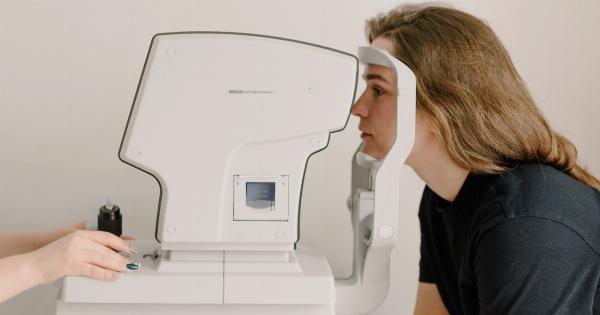Iodine is an essential mineral that is required by the body to produce thyroid hormones. These hormones are responsible for regulating metabolism, body temperature, and other important bodily functions.
Iodine deficiency occurs when the body does not get enough iodine. It can cause a range of health problems, including hypothyroidism, goiter, mental retardation, and miscarriage. The good news is that iodine deficiency is easy to detect. Here are some of the ways to detect iodine deficiency:.
1. Physical Symptoms of Iodine Deficiency
Physical symptoms of iodine deficiency can vary depending on the severity and duration of the deficiency. Here are some of the most common symptoms:.
- Swelling in the neck (goiter)
- Dry and flaky skin
- Weight gain
- Fatigue and weakness
- Depression
- Hair loss
- Cold intolerance
- Constipation
- Muscle weakness
- Menstrual irregularities
2. Laboratory Tests
Laboratory tests are the most reliable way to detect iodine deficiency. The most common test is the urinary iodine test. This test measures the amount of iodine that is excreted in the urine over a 24-hour period.
The test is simple, inexpensive, and non-invasive. A normal result for the urinary iodine test is between 100 and 200 micrograms per liter (mcg/L). A result lower than 100 mcg/L indicates iodine deficiency.
Another test that can be used to detect iodine deficiency is the blood test. This test measures the levels of thyroid-stimulating hormone (TSH) and free thyroxine (FT4) in the blood.
If the levels of TSH are high and the levels of FT4 are low, it may indicate iodine deficiency.
3. Thyroid Ultrasound
A thyroid ultrasound can also be used to detect iodine deficiency. The ultrasound can show the size and shape of the thyroid gland. If the gland is enlarged, it may indicate iodine deficiency.
A thyroid ultrasound can also detect the presence of thyroid nodules or cysts, which may be a sign of iodine deficiency.
4. Dietary Assessment
An assessment of the diet can also help detect iodine deficiency. A diet that is low in iodine-rich foods, such as seafood, dairy products, and iodized salt, may increase the risk of iodine deficiency.
A diet that is high in goitrogens, such as cabbage, broccoli, and cauliflower, may also increase the risk of iodine deficiency.
5. Symptoms in Infants and Children
Infants and children are particularly vulnerable to the effects of iodine deficiency. The most common symptom in infants is hypothyroidism, which can cause growth retardation, mental retardation, and developmental delays.
In children, iodine deficiency can cause goiter, poor growth, and developmental delays. If you suspect that your child has iodine deficiency, you should seek medical attention immediately.
6. Conclusion
Iodine deficiency is a serious condition that can cause a range of health problems. The good news is that it is easy to detect with laboratory tests, physical exams, and dietary assessments.
If you suspect that you have iodine deficiency, it is important to talk to your doctor about getting tested. With proper diagnosis and treatment, most cases of iodine deficiency can be easily treated.





























